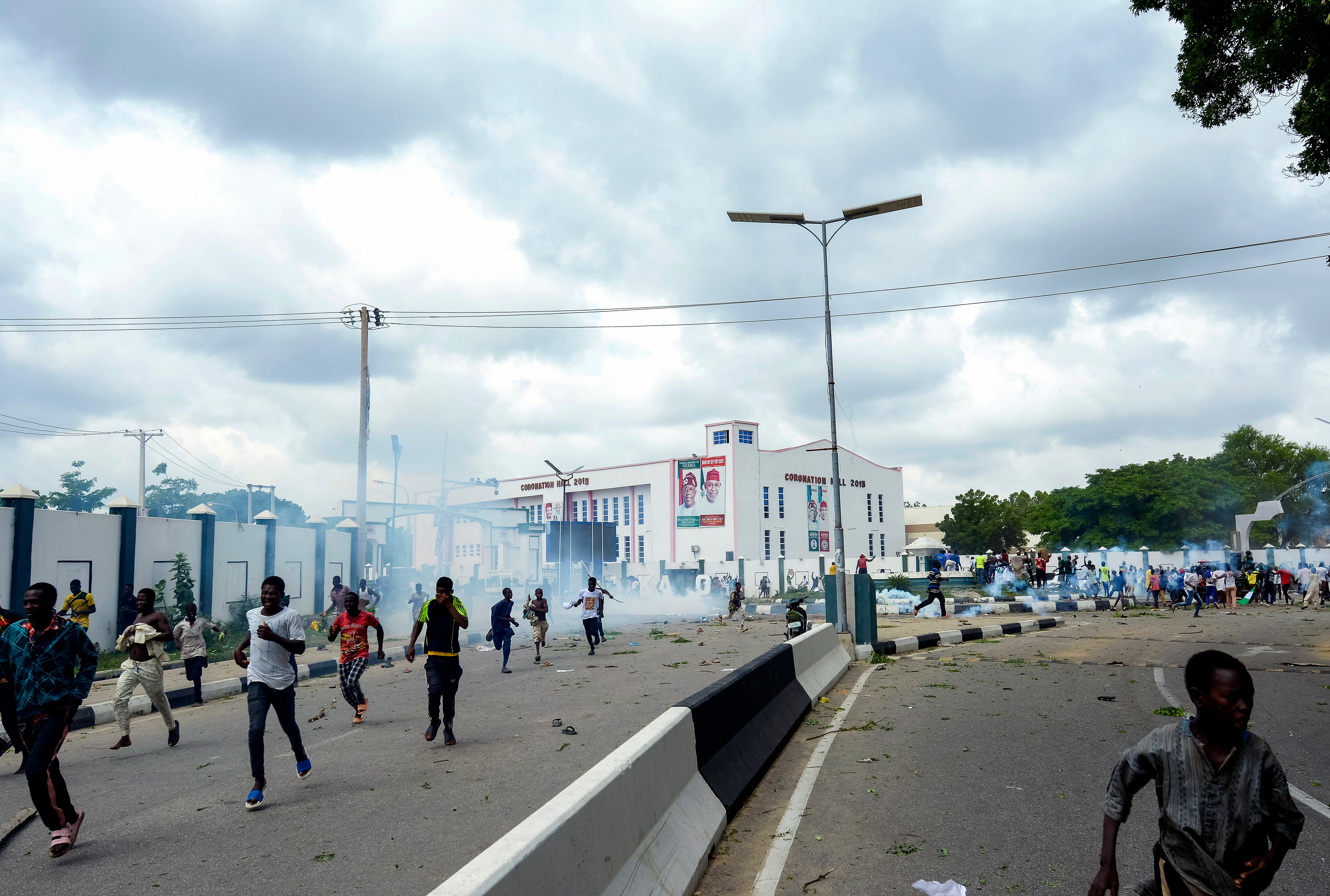These children protested against the cost of living crisis – now they face the death penalty
Four of the minors collapsed in court due to exhaustion before they could enter a plea

Your support helps us to tell the story
From reproductive rights to climate change to Big Tech, The Independent is on the ground when the story is developing. Whether it's investigating the financials of Elon Musk's pro-Trump PAC or producing our latest documentary, 'The A Word', which shines a light on the American women fighting for reproductive rights, we know how important it is to parse out the facts from the messaging.
At such a critical moment in US history, we need reporters on the ground. Your donation allows us to keep sending journalists to speak to both sides of the story.
The Independent is trusted by Americans across the entire political spectrum. And unlike many other quality news outlets, we choose not to lock Americans out of our reporting and analysis with paywalls. We believe quality journalism should be available to everyone, paid for by those who can afford it.
Your support makes all the difference.After a protest against the country’s record cost-of-living crisis, 29 children in Nigeria are facing the death penalty. Four of them collapsed in court due to exhaustion before they could enter a plea during Friday’s arraignment.
A total of 76 protesters were charged with 10 felony counts, including treason, destruction of property, public disturbance and mutiny, according to the charge sheet seen by The Associated Press. According to the charge sheet, the minors’ ages range from 14 to 17 years old.
Frustration over the cost of living crisis has led to several mass protests in recent months. In August, at least 20 people were shot dead and hundreds more were arrested at a protest demanding better opportunities and jobs for young people.
Nigeria introduced the death penalty in the 1970s but there have been no executions in the country since 2016.
Akintayo Balogun, a private lawyer based in Abuja, said the Child Rights Act does not allow any child to be subject to criminal proceedings and sentenced to death.
“So taking minors before a federal high court is wrong, ab initio, except if the government is able to prove that the boys are all above 19 years,” Mr Balogun said.
The court eventually granted 10 million naira (£4,700) bail to each of the defendants and imposed stringent conditions they are yet to meet, Marshal Abubakar, counsel for some of the boys, said.
“A country that has a duty to educate its children will decide to punish those children. These children have been in detention for 90 days without food,” Mr Abubakar said.
Yemi Adamolekun, executive director of Enough is Enough, a civil society organisation promoting good governance in Nigeria, said authorities have no business prosecuting children.
“The chief justice of Nigeria should be ashamed, she is a woman and a mother,” Ms Adamolekun said.
Despite being one of the top crude oil producers in Africa, Nigeria remains one of the world’s poorest countries. Chronic corruption means the lifestyles of its public officials rarely mirror that of the general population. Medical professionals often strike to protest against meagre wages.
The country's politicians, who are often accused of corruption, are some of the best-paid in Africa. Even the president’s wife – an office not mentioned in the constitution – is entitled to SUVs and other luxuries funded by taxpayers.
Nigeria’s population of over 210 million – the continent’s largest – is also among the hungriest in the world and its government has struggled to create jobs. The inflation rate is also at a 28-year high and the local naira currency at record lows against the dollar.
On Thursday, Nigeria was classified as a “hotspot of very high concern” in a report from United Nations’ food agencies, as large numbers of people are facing or are projected to face critical levels of acute food insecurity in the West African country.